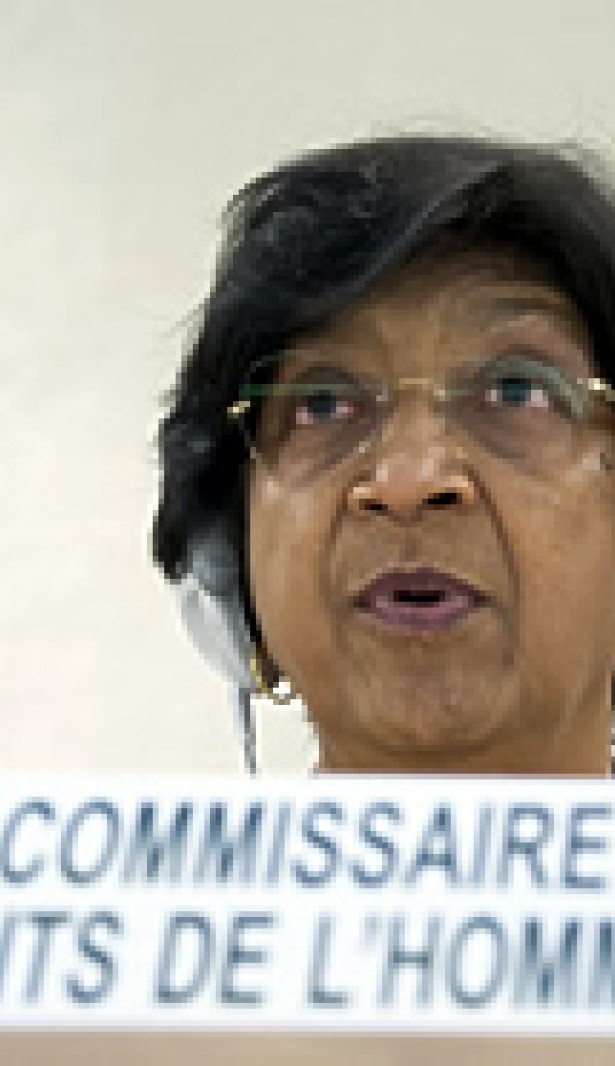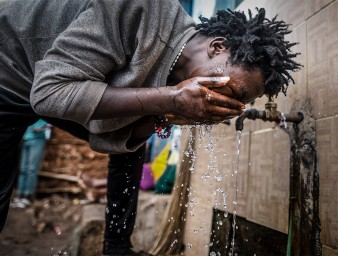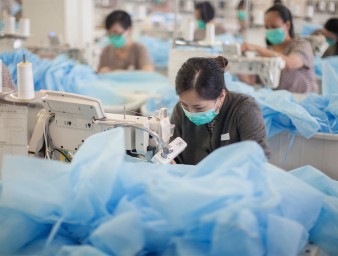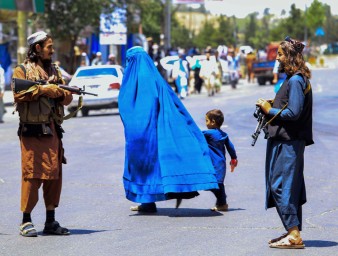The 20th session of the Human Rights Council begins
18 June 2012
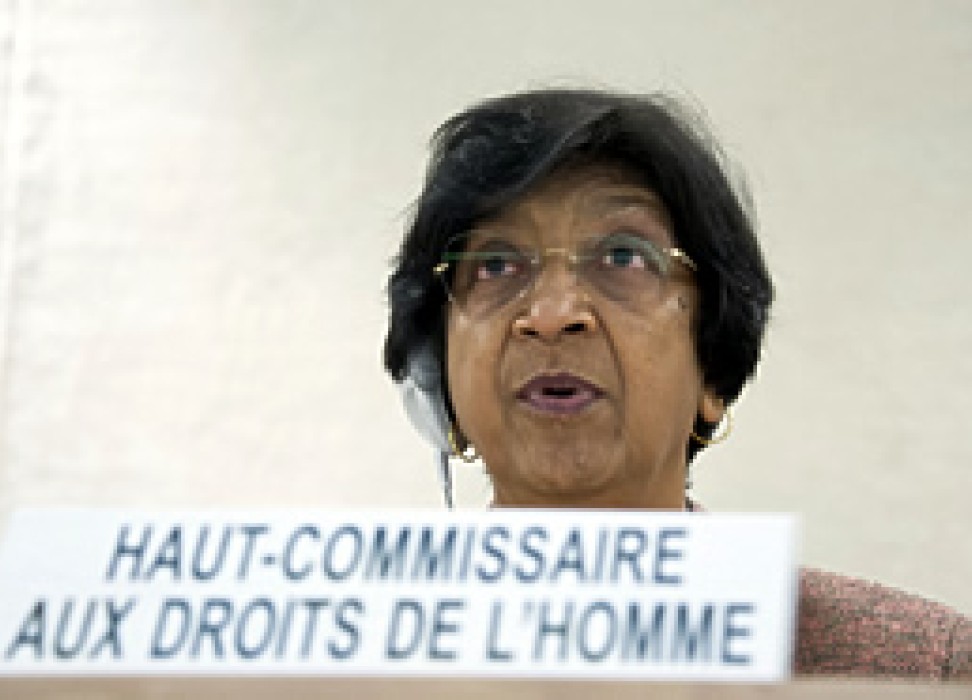
“Once again we are meeting against a backdrop of crises around the globe. Economic strife continues, political upheaval persists, and humanitarian disasters present obstacles to peoples’ exercise of their human rights in far too many places,” said UN Human Rights Chief, Navi Pillay, at the opening of the 20th session of the Human Rights Council in Geneva.
Speaking of the situation in Syria, Pillay mentioned that the escalating violence had limited the ability of the UN Supervision Mission to Syria (UNSMIS) to carry out its mandate and forced the Mission to suspend its operation on 15 June. “This suspension comes while innocent civilians are being killed every day, but the situation is also posing significant risks to UN observers who are now locked down and not patrolling.”
The High Commissioner told the Council that in many parts of the world, freedom of expression and assembly had been curtailed. Journalists are being attacked or killed at an alarming rate in several countries in Latin America; laws have been enacted to restrict freedom of assembly and of expression for the LGBT community in Moldova, Ukraine and the Russian Federation; in Hungary, recent legislative changes have affected freedom of the media and the independence of the judiciary; and freedom of assembly has been restricted in the context of students’ protests in Quebec.
Pillay noted that credible sources in Eritrea indicated that violations of human rights in that country included arbitrary detention, torture, summary executions, forced labour, forced conscriptions, and restrictions to freedoms of movement, expression, assembly and religion.
“There are an estimated 5,000 to 10,000 political prisoners,” the High Commissioner noted. “In January, I wrote to the Government seeking to explore avenues to assist it in addressing their human rights challenges and to that end offered to send a mission. To date, the Government has not replied to this proposal.”
Pillay was also concern by the political prison camps, public executions and the persisting food shortage in the Democratic People’s Republic of Korea and urged the authorities to allow access to independent experts and organizations to the country.
The UN Human Rights Chief informed delegates that she will promote the inclusion of a human rights perspective during the deliberations of the upcoming UN Conference on Sustainable Development in Rio de Janeiro, Brazil, to protect the rights of vulnerable groups including, indigenous peoples, minorities, migrants, persons living in poverty, older persons, persons with disabilities and children.
“At Rio, Member States should commit to ensuring full coherence between efforts to advance the green economy, and their solemn human rights obligations,” she said. “They should recognize that all policies and measures adopted to advance sustainable development must be firmly grounded in, and respectful of, all internationally agreed human rights and fundamental freedoms, including the right to development.”
Pillay reminded the Council that the persistence of poverty and wide disparities across regions and within countries had sparked the events of the Arab Spring and civil society mobilizations across the world.
“Against this backdrop, the imperative to respect, protect and fulfil economic, social and cultural rights acquires even greater urgency, in order to respond to genuine demands of people across the globe,” she said. “I have thus reminded governments and international institutions that health care, education, housing, and access to justice, are not commodities for sale to the few.”
At the opening of the Council session, the High Commissioner also updated Member States on the activities of her Office. She highlighted the official visits she and deputies have recently undertaken in Barbados, Burundi, Chad, the Democratic Republic of Congo, Guatemala, Lebanon, Niger, Pakistan, South Sudan, Tunisia and Zimbabwe.
The UN Human Rights Office sustained its support to the process to strengthen the UN human rights treaty body system, and to the Universal Periodic Review process which entered its second cycle.
Achievements in technical cooperation included the release of the report of the Togolese Truth, Justice and Reconciliation Commission supported by the Office, and the creation of a UN Network on Racial Discrimination and Protection of Minorities spearheaded by OHCHR. Furthermore, a growing number of Member States have requested OHCHR’s assistance in developing national action plans against racism.
The Office has also worked with the Departments of Peacekeeping Operations, of Political Affairs and of Field Support to strengthen human rights in the UN peace and security agenda. Recently, the 300 UN military observers deployed to Syria received an induction on human rights.
During the three-week session, the Human Rights Council will hear presentations from 18 independent human rights experts and the report from the Commission of Inquiry on Syria which will provide an update on their activities as well as a specific focus on the on the El Houleh massacre.
18 June 2012
